By John Pickard
Many politicians will mark October 7 as the ‘beginning’ of the Gaza war, but that is a measure of their one-sideness and hypocrisy on the whole issue of the Israeli occupation of Palestine. The ‘Gaza War’ was going on long before the Hamas incursion into Israel a year ago.
When the Hamas assault into southern Israel hit the headlines, Left Horizons immediately published an article, with these opening lines: “The war in Gaza is a pivotal moment for Israel, the Palestinian people and for the Middle East as a whole”. And so it has proved.
Today, we are witnessing the results of a monstrous and brutal retaliation by Israel, a revenge of biblical proportions, against the entire people of Gaza. There have been well over 42,000 killed, the big majority of them non-combatants, women and children. There is also a humanitarian disaster of horrific proportions, because one of the main weapons used by Israel against Gaza has been the deprivation of its over two million citizens of electricity, water, food and shelter. So-called safe-zones are still regularly bombed. Tent encampments are obliterated with shelling.
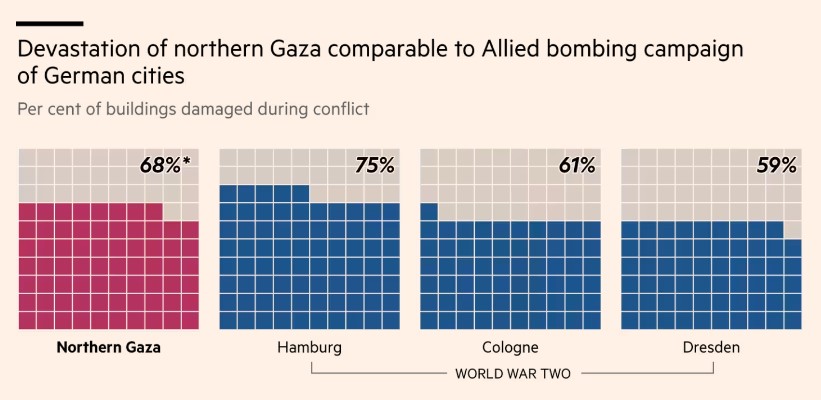
In the other part of Palestine, the Israeli-occupied West Bank, there are ongoing pogroms against Palestinian villagers by Jewish settlers who have been armed with assault rifles by the Israeli ‘security’ minister. As often as not, these pogroms are supported by the IDF. Protests by Palestinians in the bigger cities are increasingly being met by the same tactics used against Gaza, with the IDF bombing buildings and infrastructure from the air. Individual Hamas sympathisers in the West Bank are being targeted and blown to bits, along with their families and dozens of neighbours who might happen to live nearby.
Israel bombing roads used by Lebanese refugees
Finally, we now see the Israeli military machine wreaking carnage in Lebanon, in reply to a relatively limited number rockets fired by Hezbollah in sympathy with Gaza. Already, over 2,000 Lebanese have been killed and a million displaced. As this is being written, the IDF have ‘advised’ nearly a hundred towns and villages to evacuate – meanwhile bombing one of the few safe roads used by refugees fleeing to Syria.
When the Hamas incursion took place last October, Left Horizons was quite clear in its condemnation of the tactics of that organisation: “Socialists can in no way condone the murder of Israeli civilians this weekend by Hamas militants,” we wrote. In like manner, we condemned the taking of civilian hostages. Whatever was in the minds of Hamas leaders on that day, they must have known that there was not the remotest chance that Israeli could be defeated militarily. On the contrary, they should have known that the reaction of Israeli society and the most right wing government in the state’s history, would have been a bloody revenge, and suffering for the Gaza population, for what they took as an outrage.
Gaza kept as an open prison for a decade and a half
After October 7, western politicians tried to pretend that somehow the Hamas attack had come out of a clear blue sky, almost as if history didn’t exist before October 7. They explicitly denied all previous events and turned a blind eye to the fact that Gaza had been an open prison for a decade and a half, with Israel literally rationing, by land sea and air, everything that went in: water, food, electricity and any other goods. The population of Gaza had no possibility of respite, of economic and social development. Israel literally offered them no hope of change. That was what lay behind the Hamas attack.
Israel ‘occupied’ Gaza in all but name – worse, it was strangling it. And it was for that reason that socialists took a different view of the October 7 Hamas attack to the hypocritical western media. “…our refusal to support the policies of Hamas”, we wrote, “should not mean that we deny the Palestinian people a right to struggle for their existence. We will not join in the chorus of the Western media in condemning ‘terrorism’, when Israeli terrorism has gone on without comment for years”.
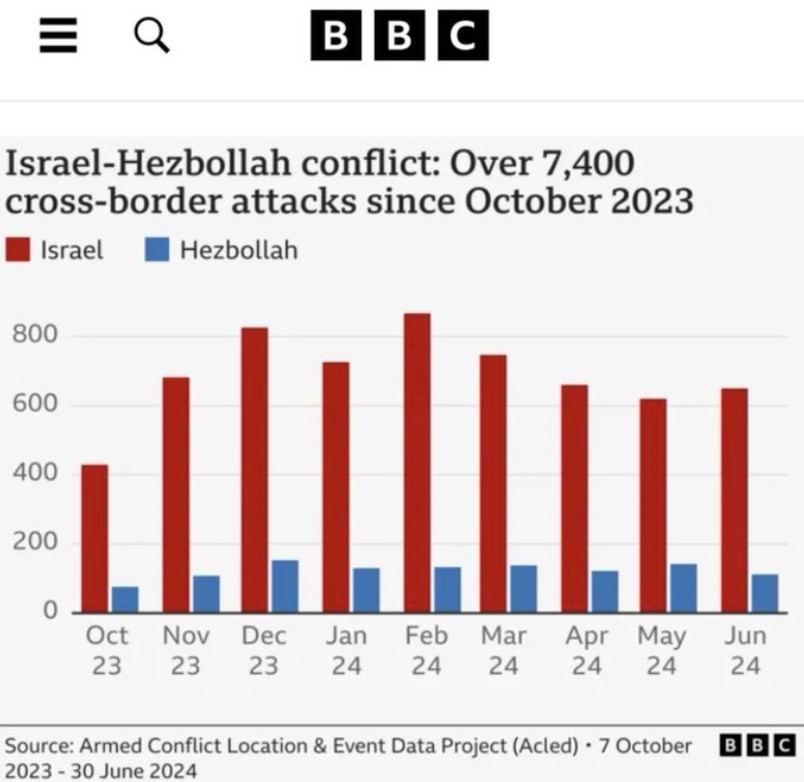
In the months that followed October 7, acres of newspaper space was given over to the names, photographs, biographies, life histories and back-stories of almost every one of the victims of Hamas on that day. We got to know all their hopes and dreams. But for the tens of thousands of Palestinian non-combatants killed – and the many hundreds before October 7 – there has been barely a peep about the human beings wiped out: their lives and their dreams; the hopes of the children and young men and women blown to bits by Israel. Most of them, at best, were merely numbers.
“The next phase of the war,” we wrote on October 8, last year, “is likely to be a brutal and pitiless assault on Gaza”. We were right, but even we, like the overwhelming majority of youth and workers around the world, were shocked and appalled at the scale and the sheer brutality of the Israeli assault on Gaza.
Approaching 100,000 tons of explosives have reduced most of Gaza to rubble, a bombing campaign in such a small area, more severe than any in the Second World War (see graphic above). If the same proportion of the UK population had been violently killed by bombing last year, there would be a million and a quarter deaths.
IDF spokepersons issue a constant stream of lies
Nothing that is said by the official spokespersons of the Israeli Defence Force can be taken on face value. They deal out a constant stream of lies, disinformation and dissembling, with the western mainstream media, unfortunately, hanging onto their every word. They are doing the same in Lebanon now as they have done in Gaza for a year.
There are no ‘precision’ bombs. And there is no consideration given to innocent civilians, including children, when Israel targets (what they think is) a Hamas or, now, a Hezbollah leader or militant. It is clear, now that the dust has settled, that even at the time of the Hamas raid on October 7, some Israelis were killed, not by Hamas, but by the IDF. They were bombed and strafed to kill Hamas militants and to try to prevent them taking hostages. It is Israeli policy to accept ‘collateral’ deaths – even Israeli deaths – to kill one ‘enemy’.
As we have argued throughout the last twelve months, this conflict, now broadened to include Lebanon, Yemen and Iran, will change irreparably the relationships between Israel and the West, and between the USA and the Middle East. It has the potential to change the Middle East even more dramatically than it already has.
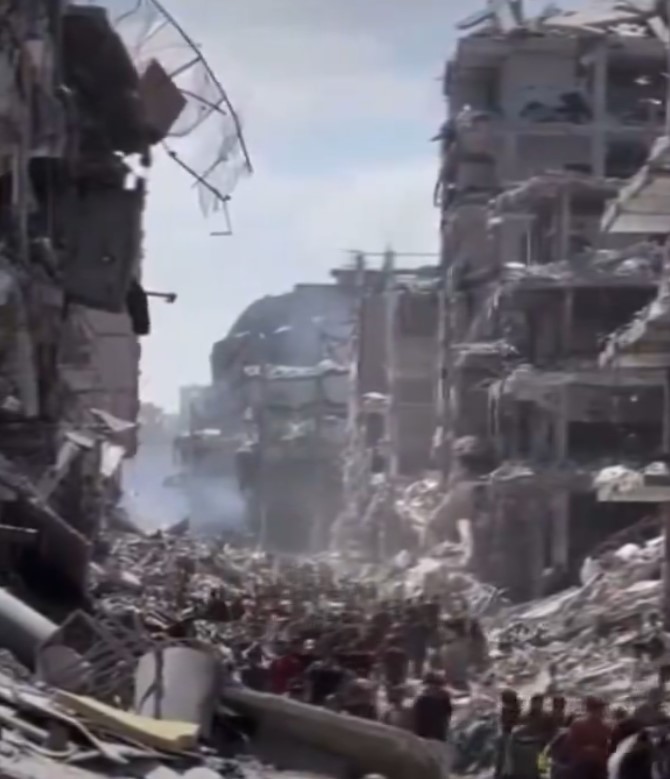
Western governments, and especially the USA, have up to now unreservedly backed Israel, as a bulwark against Arab nationalism, and in defence of western strategic and oil interests. In doing that, they have armed Israel so it is militarily stronger than all of the Arab states put together. But among these western states there is a profound sense of forboding.
Israel has no clear strategy or end game – Financial Times
The London Financial Times wrote this in an editorial last week: “…careering headlong into forever wars, giddy on its tactical success, with no clear strategy or end game, is not a recipe for long-term security and stability, for Israel or the region. The Middle East has witnessed its darkest year in decades. The killing and destruction must stop” (September 30).
For a decade and a half, Benjamin Netanyahu has dominated Israeli politics with the slogan of ‘security’. Every single war Israel has fought – and there are many in its short, seventy-six year history – has been ‘justified’ as a fight for Israel’s ‘existence’. That is still the mantra today, only it is a excuse for war – proclaimed by a military super-power – which is now wearing thin, outside, but even to some extent inside Israel.
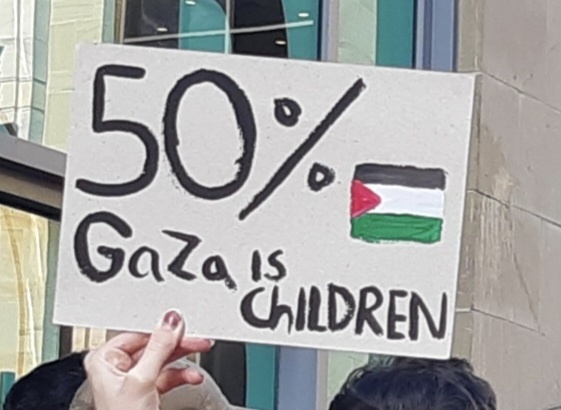
A correspondent in Middle East Eye (October 1) described Israel in these terms: “Israel today is a paranoid garrison state whose leaders portray it as a nation surrounded by millions of people who despise its very existence. This is why Zionists and Israeli Prime Minister Benjamin Netanyahu sling ghastly “antisemitism” accusations at anyone who dares to criticise state policy”.
Of the workers and youth who have demonstrated in their hundreds of millions around the world, against the horrendous slaughter in Gaza, few will consider themselves to be ‘antisemitic’. But that is precisely the charge used against any critic of Israel.
Chief rabbi speaks up for Israel, not British Jews
When there was a suggestion, for example, that Britain reconsider a few of its arms export licences to Israel – in fact, a small proportion, making it more of a political gesture than a serious embargo – the chief rabbi, Ephraim Mirvis, condemned the idea. In his statement, there was not a word about defending British Jews going about their business, observing their faith or walking safely in the streets – it was not about antisemitism, in other words, it was purely in defence of the Israeli state, no more and no less.
It is the political right who are unable, or, more likely unwilling, to distinguish between antisemitism and criticism of Israeli state policy, not the left – but that difference is clear to hundreds of millions of workers and youth around the world. One profound and likely enduring result of the devastation of Gaza is that Israel has become a pariah state, and that realisation will itself have a profound effect on Israeli workers, even if Netanyahu and his ministers seem impervious to the idea.
The condemnation of Israel in the UN General Assembly, in the International Court of Justice and in other organisations are symptomatic of a huge shift in consciousness across hundreds of millions of people.
Israel cannot offer peace, stability and a ‘safe homeland’ for Jewish people, when it is a permanently armed camp locked into a ‘forever war’ with its neighbours, while oppressing and denying any rights to half of the population it rules. That realisation might be slow to dawn on the majority of Israelis, but it is already the view at least of a minority and a feature of the new Israeli politics will be increasingly bitter tensions, and possibly even conflict, between these two wings of the Jewish population.
Reactionary Arab leaders support Palestine only in words
Those Arab states that had been following a raprochement with Israel, sponsored by the USA, are now under pressure from their own populations to backtrack. In terms of Israel ‘normalising’ relations with the Arab world, through the ‘Abraham Accords’ sponsored by the USA, Saudi Arabia would have been the biggest diplomatic ‘prize’. But here, in words at least, the government has been forced to announce that a Palestinian state is a pre-condition for any normalisation of relations with Israel.
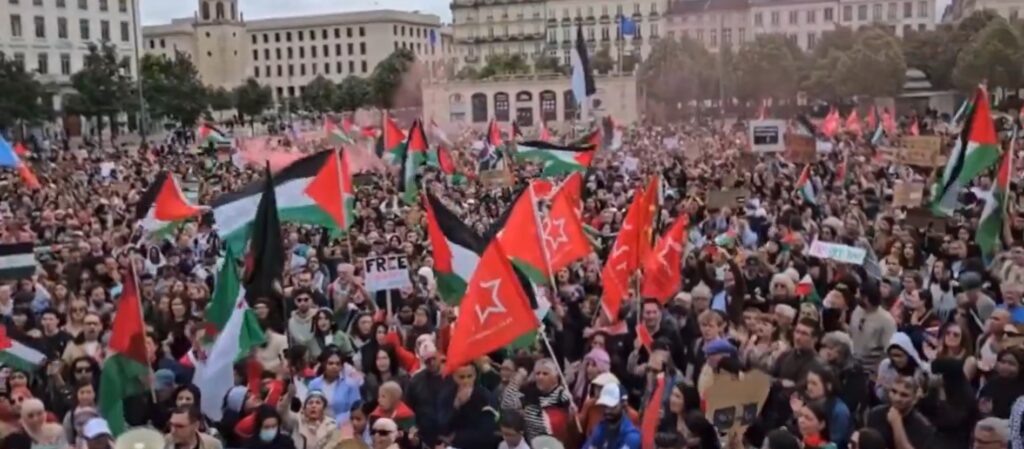
The longer the war goes on, and the wider it reaches, the greater will be the impact on the rest of the Arab world. The leaders of the Arab states – almost all of them corrupt, sheikdoms, kingdoms and dictatorships – are sitting on a volcano of discontent over their population’s own economic conditions and the brutal treatment of their fellow Arabs in Palestine.
For decades, Arab leaders have paid lip service to the needs of Palestinians, while in practice doing nothing. The cause of the Palestine has been used only to give ‘legitimacy’ to undemocratic regimes and to channel popular discontent. The reactionary Arab leadership, those “friends” of the leadership of the Palestine Liberation Organisation, are as much an obstacle to Palestinian freedoms as the Netanyahus of the world.
In the last year, Arab leaders have voiced ‘concern’ about Gaza, while suppressing supportive demonstrations in their own countries. In Cairo a year ago, when the bombing of Gaza began on a large scale, there was one government-sponsored demonstration, but when it tried to move to Tahir Square, it was broken up by the police. There have been none since.
“In several Gulf states”, a correspondent wrote on the Middle East Eye website, “the waving of Palestinian flags and wearing of keffiyehs have been strictly banned. Even prayers offered in support of Palestinians have been suppressed by Saudi police in Mecca…The fact of the matter is that the gap between Arab rulers and their populations has never been wider, a situation that is clearly unsustainable in the long term”. Saudi Arabia has even erased “Palestine” from school textbooks where it was previously shown.
A war with Iran will have complex and unforeseen results
In the capitals of these Arab states, which are mostly Sunni Muslim, leaders will now be rubbing their hands with glee at the prospect of an Israeli/US war against Iran, because the latter is seen by them as a major source of instability, ever since the Shia revolution of 1978. Iran has sponsored the Hezbollah in Lebanon and the Houthis in Yemen, both Shia Muslim organisations, as its ‘proxies’ in the Middle East.
But a major new war extending to Iran could have complex and unforeseen results in the Arab world. Iran is a large and populous country, with a developed industrial and military sector, albeit that the latter is weaker than Israeli and US military capabilities. But a war could mean its extension to the Gulf oil states, like Saudi Arabia, the UAE and Kuwait, from which a huge proportion of world oil is still exported. The economic effects of a complete blockade of Gulf oil would be incalculable for the major capitalist countries, and therefore a war and consequent instability are things that no western political leaders want.

In next door Iraq, a majority Shia Muslim country, there are strong militias armed and trained by Iran, and there still are a thousand US troops. In the event of a bigger war, these may be a provocation too difficult to ignore. The USA has come to an agreement with the Iraqi government to close all US bases, but that may have come too late to prevent major attacks on US service personnel there and at the other main US base illegally emplaced in Syria near the border with Iraq.
Israel right wing want apartheid and/or ethnic cleansing
The USA has 40,000 armed forces personnel in the Middle East, a significant and powerful force, but weeks before a presidential elections, the last thing the White House wants is dozens of body bags being flown back from the Middle East.
The unspoken strategy of the Israeli government, under the most right wing government in the state’s history is ethnic cleansing, They have built an apartheid state that is even acknowledged by some liberal Israeli newspapers and politicians. That is no small thanks to all those western politicians, including not a few on the Labour Party’s right wing, who have supported Israel whatever it does.
But they would like to go even further, to the complete removal of Palestinian Arabs from the West Bank and Gaza, to create Eretz Israel, from the River to the Sea. If they could, they would push the Gaza population out to Egypt and the West Bank population to to Jordan or elsewhere. After the conquest of Gaza over the past month, it is beginning to look increasingly like the IDF is creating the conditions for a permanent occupation.
But what the Israeli government wants to do – to extend the zionist project to become a permanent series of conquests and occupations – and what they can get away with, are not necessarily the same thing.
It is impossible to predict with any certainty the likelihood of events now in the Middle East. But we can be one hundred percent sure that the old ‘norms’ have gone. The entire strategy of the zionist right, to enforce apartheid and/or ethnic cleansing is now unravelling. Netanyahu’s plan to “change the face of the Middle East” may well blow up in his face. Military prowess and conquest are one thing, but political support and stability are something else entirely.
For the main countries of capitalism, their strategic interests and relationships in the region are also likely to unravel. Above all, the former stability of Arab governments will be eroded. The only Middle East force that has not spoken in the last twelve months is the Arab labour movement. In Egypt alone, the working class constitutes a force of tens of millions and if that sleeping giant were to awaken, as it did in 2011, then it will change the outlook of workers in the entire region and globally.
The picture today in the region is far from an optimistic one. We should never forget that the tens of thousands of victims of these wars are workers, with the same ordinary aspirations and needs as workers anywhere else in the world.
There are many different facets to the death agonies of world capitalism, a system in terminal crisis and decline. But among the worst are these: indifference to others’ death and suffering; religious fanaticism and exclusiveness; the ignorant hatred of nationalists and the self-righteousness and lying used to mask them all . All of them are present in the conflicts in the Middle East today and socialists need to be able to see them, understand them and combat them all.



